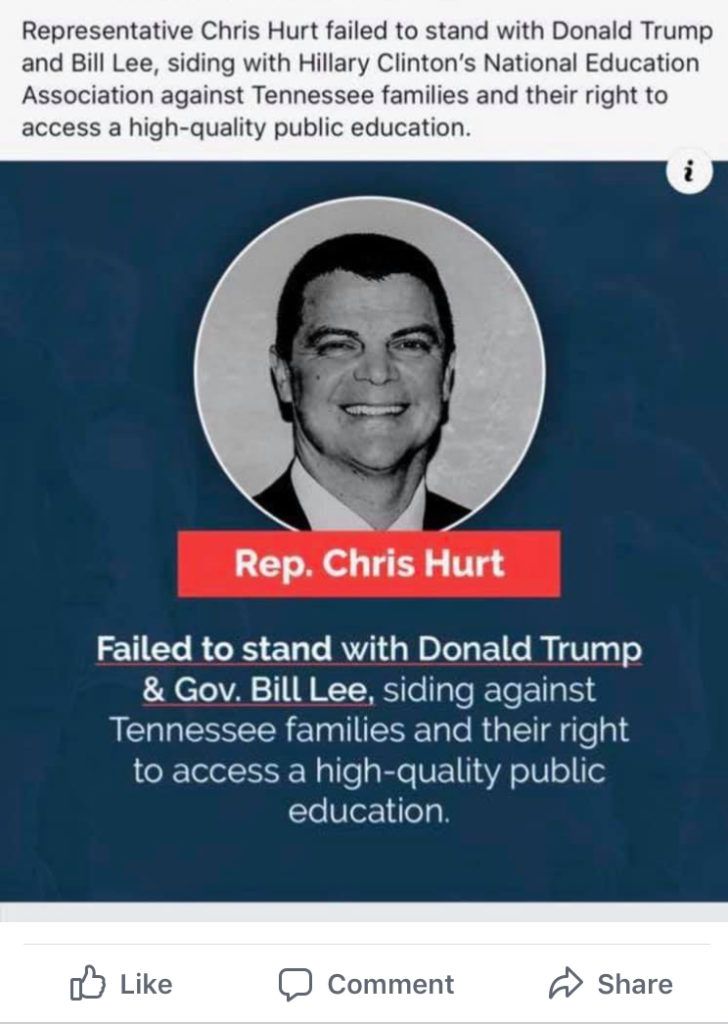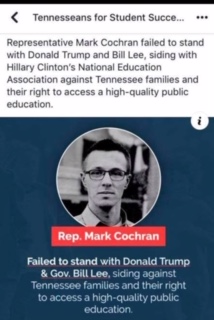Nashville school board member Amy Frogge takes to Facebook to expose the Broad/Ed Reform agenda of privatization. Her post follows:
Dear Nashville (and others),
Please pay attention to those with whom you choose to align yourself on education issues. If you are supporting anyone funded or trained by California billionaire Eli Broad, you can bet you’ll end up on the wrong side of history.
Eli Broad created and funds a blog called Education Post. The folks who run it would like for you to believe they are just activists for low-income families and minority children- but in reality, they are dripping with dirty money. Education Post’s first CEO, Peter Cunningham, was paid $1 million for 2 1/2 years of blogging. Board member Chris Stewart, known online as “Citizen Stewart,” was paid $422,925 for 40 hours a week across 30 months as “outreach and external affairs director.” As author/blogger Mercedes Schneider concludes, “In ed reform, blogging pays juicy salaries.” (For the record, I have never earned a penny for any of my social media posts, of course.)
Paid Education Post leaders regularly try to infiltrate online Nashville education discussions (Nashville is a national target for charter expansion), and Education Post also pays local bloggers to write posts. Local bloggers Zack Barnes and Vesia Hawkins are both listed as network members on the Education Post blog.
Many of the big players in Tennessee were “trained” by Eli Broad through his Broad Superintendents Academy, which recruits business leaders with no background in education to be superintendents- with the purpose of privatizing schools (closing existing schools and opening more charter schools). The current Tennessee Commissioner of Education, Penny Schwinn, is a “Broadie.” Two former heads of Tennessee’s failed Achievement School District (a ploy to expand charter schools without local approval) were Broadies: Chris Barbic and Malika Anderson. Former superintendents Jim McIntyre (of Knoxville) and Shawn Joseph (of Nashville) were also affiliated with the Broad network. Shawn Joseph claimed both McIntyre and former Baltimore superintendent Dallas Dance, a member of Education Post’s network, as his mentors.
The school “reforms” pushed by Broadies all center around profit-making through public education: standardized testing (money for private test companies), computer learning (money for IT companies and cost-savings on hiring teachers), charter schools, vouchers, scripted curriculum that can be monetized, etc. Broadies typically see teachers as expendable and believe teaching can be mechanized.
Since charters and vouchers have become an increasingly unpopular cause, the latest angle is for Broadies to increase the number of (sometimes rigged) vendor contracts for programs and services, as well as consultants, with school districts. Former Baltimore superintendent Dallas Dance went to federal prison for rigging no-bid contracts in a kick-back scheme. In a similar scheme, his mentee (Nashville superintendent) Shawn Joseph was caught inflating no-bid contract prices (in violation of state law) for vendors connected with the recruiter and Broadies who placed him in Nashville through a rigged superintendent search. (See comments for further information.)
Billionaires like Eli Broad who fund school profiteering efforts like to hire/fund people of color to act as front-men for their efforts. This provides the appearance that the push for “school choice” (i.e., charters and vouchers) is grassroots. When these folks are questioned or caught in the midst of wrong-doing, they are able to cry racism. Meanwhile, everyone has their hands in the cookie jar of funding meant to serve children.
The ploys used in school profiteering are particularly nasty- the worst of dirty politics. The goal is usually to smear, humiliate, shame and discredit anyone who is an effective critic of the school privatization agenda. Lots of money is spent on PR for this purpose. (I’ve even been attacked on this Facebook page by a paid “social media specialist” for my opposition to charter schools.)
You’ll notice that the atmosphere tends to become particularly dysfunctional and circus-like when Broadies are in charge or involved. You’ll also notice that Broadies like to push the narrative that locally-elected school boards are too dysfunctional to lead (even when the Broadie in charge is causing all the dysfunction!). This is because Eli Broad and those affiliated with him want no public oversight of public education spending.
So- when you witness education conversations on social media, be sure to figure out who is funding those claiming to promote “school choice” or to advocate for children in poverty. Follow the money, y’all. Always!

For more on education politics and policy in Tennessee, follow @TNEdReport
Your support — $5 or more today — makes publishing education news possible.











